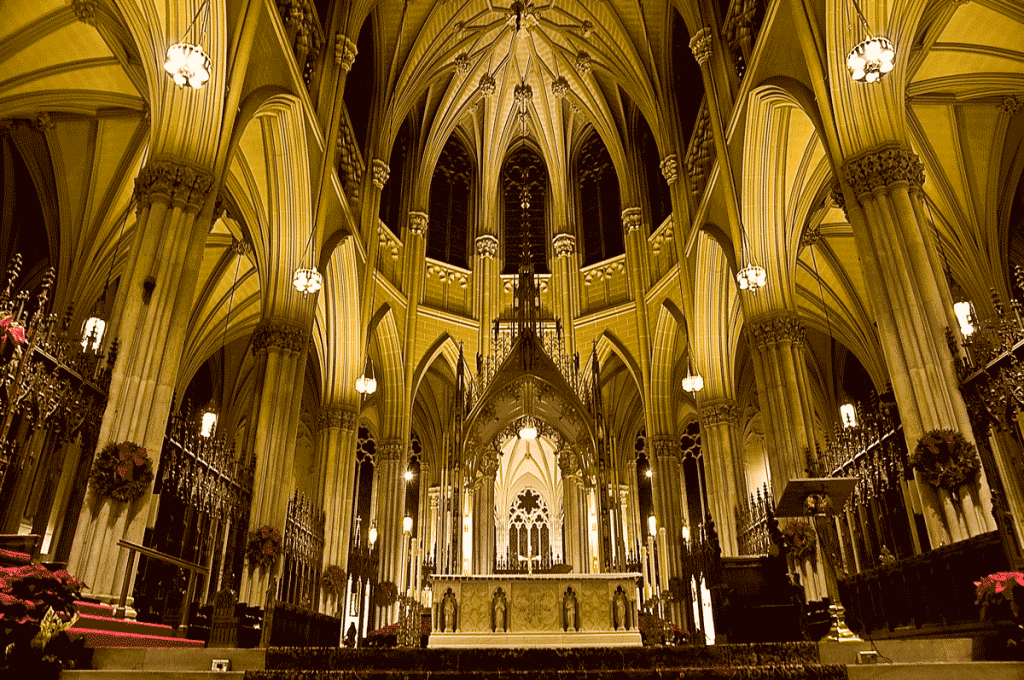
When I was in high school in the 1980s, Christmastime always meant an opportunity to earn a little extra spending money. Every November, a few churches in the Orlando area would contact our youth orchestra, asking for the names of musicians willing to perform at their holiday concerts. (We were young, we were eager, and we could be hired on the cheap.) Sometimes, the programs consisted of little more than carols and popular numbers, yet on a few occasions, the string quartet I was a part of had the chance to perform Handel’s Messiah, and I remember those exhilarating nights with great fondness.
At that time, I liked my Baroque music full-bodied and lush—I was only familiar with recordings of the Messiah, for example, that employed a large choir and formidable orchestral forces. It turns out, however, that our little foursome—augmented only with timpani, trumpet, and piano (a harpsichord would have been too great a luxury)— more closely resembled the stripped-down ensemble that performed the oratorio at its Dublin premiere, on April 13, 1742.
Few other works of music communicate with such clarity, power, and purity of expression the themes underlying the narrative of Christianity: prophecy, divinity, suffering, sin, death, resurrection, ascension. Thus, its annual association with Christmas. Yet the work has always appealed to me—a non-Christian and a nonbeliever, to boot—and this has everything to do with Handel’s mastery of musical form and dramatic tension, honed during his development as an operatic composer. What I learned only recently, however, while reading Jonathan Keates’s Messiah: The Composition and Afterlife of Handel’s Masterpiece, was that the composer did not necessarily intend for his work to be heard in church. “Whatever the gravity and portentousness of its sacred text,” Keates writes, “Messiah was nevertheless designed from the outset as a work for performance in a secular context, an oratorio as the term was understood by eighteenth-century London theatre audiences.” One Irish journalist even described the piece premiere as an “Entertainment”—not that this word implied a lack of seriousness or intellectual rigor. As Keates points out, audiences “in Handel’s time were ‘entertained’ by everything from a tragedy or an opera to recitations of Greek and Latin poetry or even a church sermon.”
By the time he came to write his Messiah, in a febrile creative burst during the summer of 1741, the German-born Handel had been living in England for some 30 years, having become a naturalized British citizen in 1721. His successes in the theater had led him to practically invent another kind of choral and orchestral form—the English oratorio. With an extensive knowledge of the King James Bible, Handel had taken what he knew of the lyric-dramatic style of Italian opera and applied it to sacred texts. As Keates writes, these oratorios—Israel in Egypt, Samson, and Saul, among them—were “something simpler, more universal” than operatic works such as Alcina and Ariodante, “with the chorus taking on the role of the wider community and the key relationship made spiritual rather than erotic.” The Messiah—its libretto prepared by Charles Jennens, its overture French in style, its arias decidedly Italianate, and its score infused with popular numbers that would have been familiar to English audiences of the period—was the apotheosis of this new form. At once intimate and grand, it has delighted audiences for nearly three centuries since.
One of the legions of the enraptured was Ralph Waldo Emerson, who heard the work on Christmas Day in Boston, in 1843. Returning home after the performance, he recorded his vivid impressions in his journal:
At the performing of Handel’s Messiah I heard some delicious strains & understood a very little of all that was told me. My ear received but a little thereof. But as the master overpowered the littleness & incapableness of the performers, & made them conductors of his electricity, so it was easy to see what efforts nature was making through so many hoarse, wooden & imperfect persons to produce beautiful voices, fluid & soul-guided men & women. The genius of nature could well be discerned. By right & might we should become participant of her invention, & not wait for morning & evening to know their peace, but prepossess it. I walked in the bright paths of sound, and liked it best when the long continuance of a chorus had made the ear insensible to the music, made it as if there was none, then I was quite solitary & at ease in the melodious uproar. Once or twice in the solos, when well sung, I could play tricks, as I like to do, with my eyes, darken the whole house & brighten and transfigure the central singer, and enjoy the enchantment.
Emerson did, however, have one complaint:
This wonderful piece of music carries us back into the rich historical past. It is full of the Roman Church & its hierarchy & its architecture. Then further it rests on and requires so deep a faith in Christianity that it seems bereft of half & more than half its power when sung today in this unbelieving city.
I have no trouble reveling in the glorious contradiction that perplexed the eminent scholar from Concord. I may be a part of the unbelieving city, may not consider myself a part or particle of God, yet I cannot help feeling swept up by a surging tide of wonder and awe when in the presence of such sacred works as Bach’s Cantatas, Bruckner’s Masses, Mozart’s Great Mass in C minor, or the Messiah—particularly in the case of the latter, having once been one of those “hoarse, wooden & imperfect persons” in the orchestra pit. When we surrender to music such as this, we do not need religion to know what it is to be among the devout.

